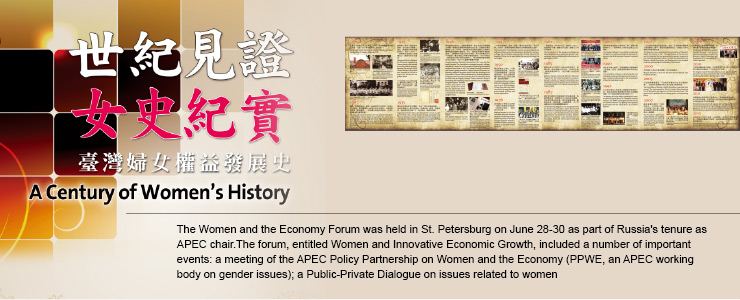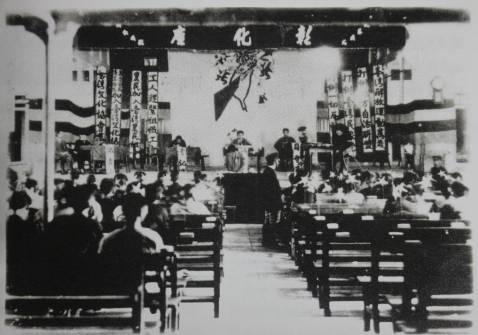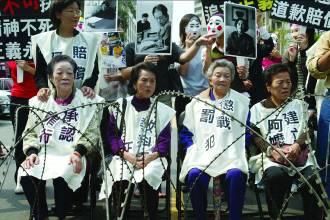
Progress of Women’s Rights:
Taiwan Women, an Incredible Century
Taiwan Women, an Incredible Century
As the society changes and with the advancement of women’s human rights, Taiwan women have made extraordinary contributions and attained spectacular achievements in both the private and public spheres and at both personal and societal levels. Not only have Taiwan women started to play an increasingly important role in all fields, but they also have bravely gone beyond the boundary previously set by the traditional values to shine with radiant self-confidence.
In view of a century of progress, in 2007, the United Nations, in its worldwide assessment of the development of gender equality in a country, ranked Taiwan 22nd in its Gender-related Development Index (GDI) and 24th in its Gender Empowerment Measure (GEM), demonstrating the fact that both men and women in Taiwan can develop equally in education, health, economy and labor, and decision making. Taiwan has made in the promotion of women’s rights and benefits and in the development of gender equality.
Year 2011 marks the 100th founding anniversary of the Republic of China. In order to educate the public about the endeavor undertaken and the contribution made by Taiwan women, the theme for this exhibition is “Taiwan Women’s Progress.” This exhibition documents the course of advancement of women’s rights and benefits in the Taiwan society, the development of women’s groups in Taiwan, and the governmental achievements made in the promotion of women’s rights and benefits. Furthermore, this exhibition presents a compilation of distinguished Taiwan women and traces the lifestyle change Taiwan women have experienced. This exhibition takes you on a journey to travel down the time tunnel and back in time to revisit the splendid lives Taiwan women have lived in the past one hundred years—to reflect on the past, focus on the present, and envision the future—while preserving the excellent record attained in the promotion of Taiwan women’s rights and benefits.
In view of a century of progress, in 2007, the United Nations, in its worldwide assessment of the development of gender equality in a country, ranked Taiwan 22nd in its Gender-related Development Index (GDI) and 24th in its Gender Empowerment Measure (GEM), demonstrating the fact that both men and women in Taiwan can develop equally in education, health, economy and labor, and decision making. Taiwan has made in the promotion of women’s rights and benefits and in the development of gender equality.
Year 2011 marks the 100th founding anniversary of the Republic of China. In order to educate the public about the endeavor undertaken and the contribution made by Taiwan women, the theme for this exhibition is “Taiwan Women’s Progress.” This exhibition documents the course of advancement of women’s rights and benefits in the Taiwan society, the development of women’s groups in Taiwan, and the governmental achievements made in the promotion of women’s rights and benefits. Furthermore, this exhibition presents a compilation of distinguished Taiwan women and traces the lifestyle change Taiwan women have experienced. This exhibition takes you on a journey to travel down the time tunnel and back in time to revisit the splendid lives Taiwan women have lived in the past one hundred years—to reflect on the past, focus on the present, and envision the future—while preserving the excellent record attained in the promotion of Taiwan women’s rights and benefits.
 |
1887 Sin-Lau Girls School in Taiwan, the first western-style girls’ school in south Taiwan, began its operation. This school was later renamed as Chang Jung Girls’ Senior High School and has been operating for over 100 years. Upon its founding, the first admission requirement was to ban the students on practicing foot binding. |
 |
1925 Changhua Women’s Network, the first group organized by Taiwan women, was founded to sow the seeds for women’s liberation. The next year (1926) Zhuluo women’s Association was founded in Chiayi to begin the discussion on gender culture. |
 |
1976 Madam Annette Lu Hsiu-lien and other advocates founded the Pioneer Publishing, the first publishing house in Asia that brought together women’s movement and the publishing business, to champion for new feminism. |
 |
In 2002, Gender Equality in Employment Law was finally passe to profect female workers in working places. It took 11 years for advocates to move the legislative system and came out laws to protect working women. Gender Equality in Employment Law was reviewed and trasnformed into Act of Gender Equality in Employment in 2008. |
 |
The Ministry of Foreign Affairs established the inter-ministerial project group for Taiwanese comfort women. The TWRF campaigned for the victims of “Comfort Women” by fighting with Japanese government for the “Reparations to comfort women.” |

